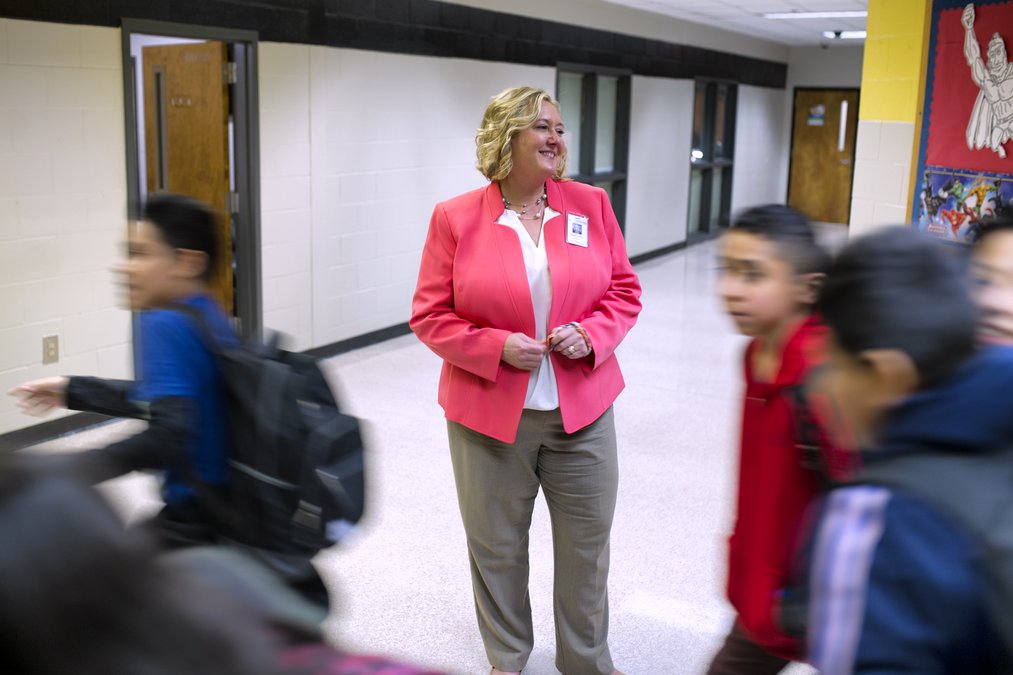Principal Kristin Finley looks on as hundreds of students pour into the halls of East Hall Middle School during a class change.
On-site mental health services at schools showing promise

